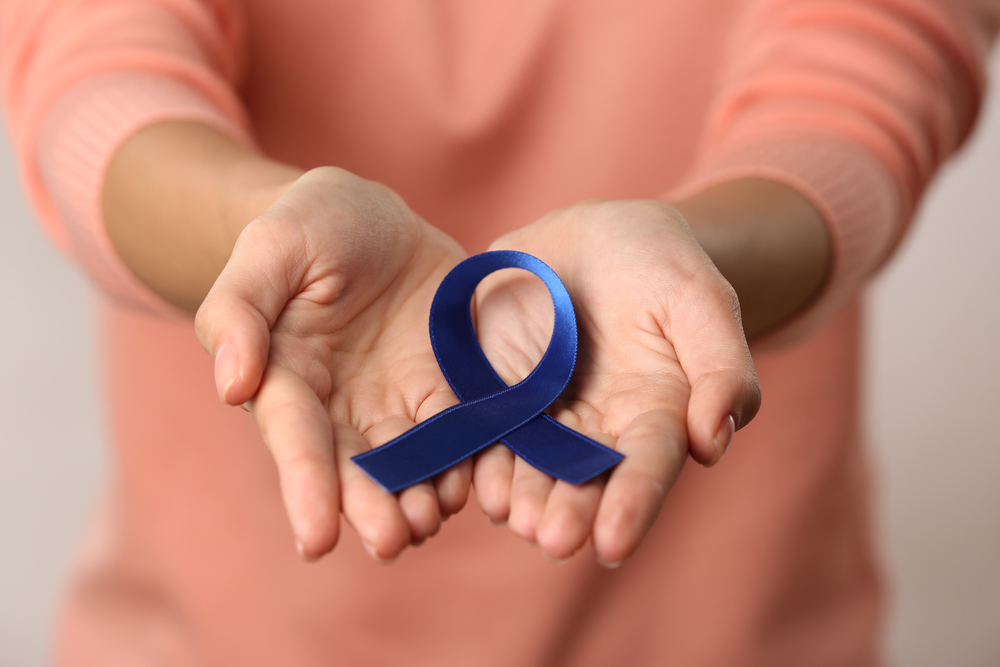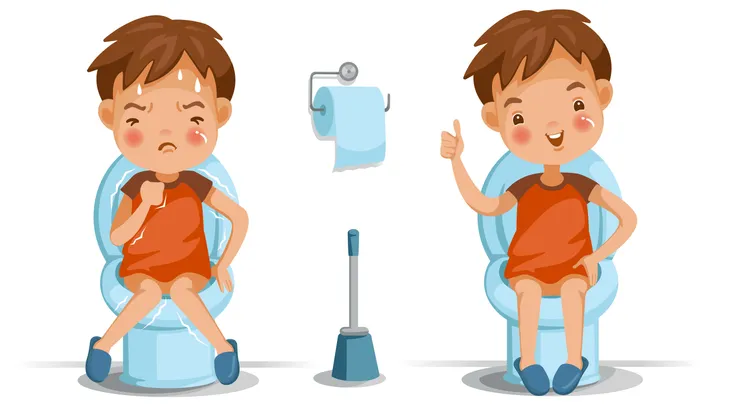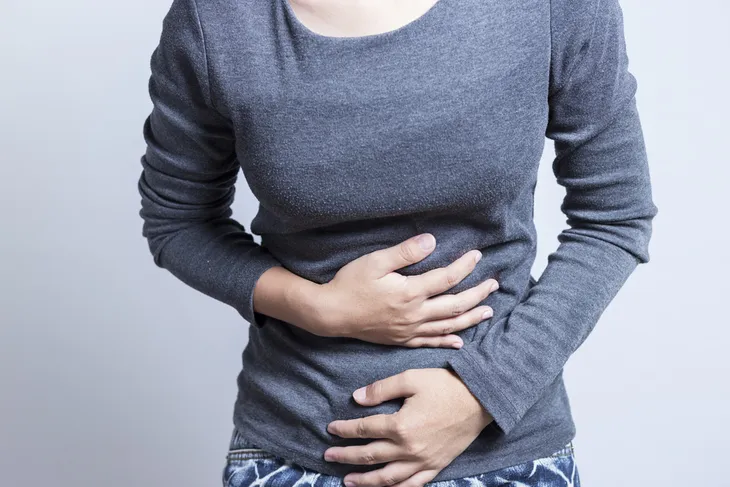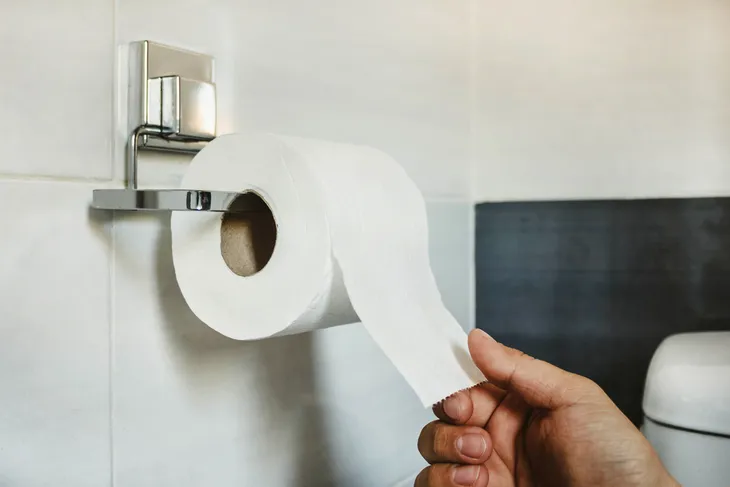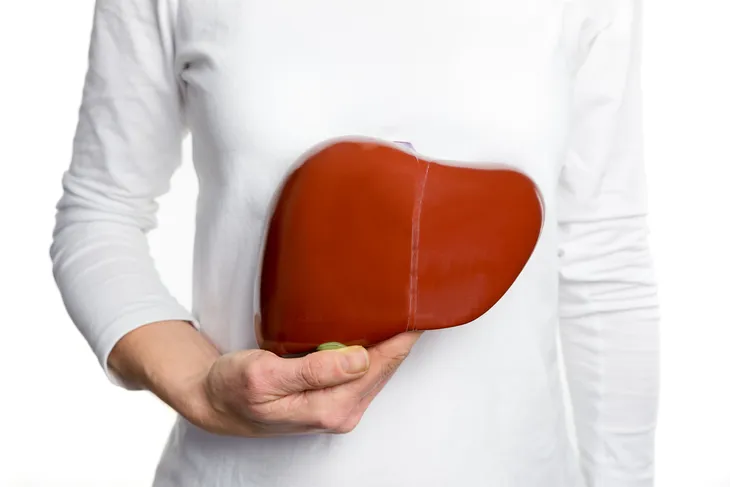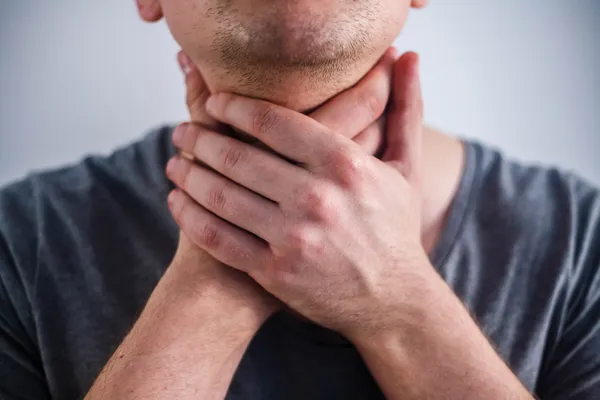Colon cancer (or colorectal cancer), is one of the most prominent and dangerous forms of cancer. It starts with the buildup of polyps along the wall of the colon. As these polyps reproduce, they can cause serious digestive problems. Should the polyps remain benign (non-cancerous), they will present some mild discomfort. However, if they become cancerous and spread, they can become life threatening.
One of the reasons colon cancer is so deadly is that it’s hard to detect. As this article will show, early signs of colon cancer are easy to confuse with other, far less dangerous health issues, such as the stomach flu or irritable bowel syndrome (and that’s why it’s important for adult men and women to get themselves tested for colon cancer). So, what are some of the symptoms of colorectal cancer?
Constipation
Difficulty having regular bowel movements can be a sign of many issues. Technically, it usually means the patient is not getting enough fiber and may not be drinking enough water. Without enough fiber and water, the bowels can become dry, making it difficult for food waste to move efficiently through and out of the body.
However, constipation may also be a sign of bigger problems, namely colon cancer. This is because the presence of polyps in the colon can slow the progress of food waste, making it more difficult to pass it out of the body. If you regularly struggle with constipation, talk to your doctor about getting tested for colorectal cancer.
Diarrhea
When it comes to problems effectively flushing waste out of the body, diarrhea and constipation are on opposite ends of the spectrum. While constipation is usually the result of not getting enough fiber or water in the diet, diarrhea can be the result of excessive hydration. It can also be the result of an illness, such as the flu, that prevents the body from effectively absorbing nutrients.
But diarrhea can also be an early sign of colon cancer. That’s because the presence of polyps or tumors in the colon can prevent it from effectively processing waste, meaning it leaves the body in liquid form. If this happens to you frequently, it’s a good idea to speak about the problem with your doctor.
Oddly Shaped Stool
Generally speaking, the ideal shape for stool is long, solid and cylindrical, which is an indication that the body absorbed all the nutrients it needed before smoothly flushing the waste out of the body by way of the colon. So, what does it mean if your stool looks drastically different than this?
Oddly shaped stool could indicate that there’s a problem with the colon. For example, if the stool is small or ribbon-like, it could be an indication that the body’s waste proceeded past an obstacle or even a series of obstacles, such as polyps or tumors. If you frequently notice that your stool takes an odd shape, talk to your doctor about the issue.
Difficult Bowel Movements
Ideally, an individual will have one or two bowel movements a day and these bowel movements will be fairly routine in terms of exertion; in other words, it should be no more difficult to have a bowel movement than to chew food, swallow, urinate, or carry out other daily bodily functions.
If, however, going to the bathroom presents you with significant pain or discomfort, there may be a problem. If it’s difficult to pass waste out of the body, this may be a sign that something inside the colon, such as polyps or tumors, are blocking it. If these blockages are cancerous, then your health may be threatened. For this reason, it’s important to talk to your doctor if you routinely struggle during daily bowel movements.
Abdominal Discomfort
Abdominal pain isn’t particularly abnormal. For many people, it can result from eating a particular type of food (for example, even very healthy people can have abdominal discomfort after eating foods like beans, broccoli, or brussels sprouts). But it shouldn’t happen all the time, and if it does, it could be a sign of bigger problems below the surface.
That’s because abdominal pain or discomfort can be the result of a blockage in the colon. If this blockage is the result of a cancerous tumor, then you could be in serious danger. Should abdominal cramps become especially painful, it could be a sign that the tumor has spread or even perforated the wall of the bowel. In the latter case, it’s important to seek medical help right away.
Blood in the Stool
For many people, there are few more concerning images than seeing blood in their own stool after a bowel movement. However, more often than not this isn’t anything to fret about. For one, often it’s not blood at all, but simply a discoloration of the stool caused by eating some type of food (such as beets or something that’s been colored using food dye). In other cases, it’s just the result of a small tear somewhere in the colon or rectum, often as the result of constipation.
Still, blood in the stool should be a warning sign, especially if it appears often. In fact, this can be a sign of the presence of tumors in the colon; as the tumors grow or spread, they’re torn by waste passing through the body, leading to bright red blood in the stool. Although blood in the stool isn’t always a sign of colon cancer, it’s reason enough to have a conversation about the matter with your doctor.
Sudden Weight Loss
The sudden loss of weight can accompany the emergence of colon cancer, but it’s rarely a direct sign of the problem. Instead, weight loss is usually the result of another sign of colorectal cancer: abdominal discomfort or pain. Put simply, if it becomes too uncomfortable or painful to process food, an individual will consciously or even subconsciously limit or stop their consumption of food.
This is a problem for a variety of reasons. First and foremost, if the cause of the abdominal discomfort is colon cancer, then eating less and losing weight will only worsen the problem by depriving the body of much needed nutrients, such as fiber. So, if you’ve been losing weight and eating less because of abdominal discomfort or pain, talk to your doctor as soon as possible.
Frequent Bathroom Trips
We’ve all been in situations where it felt like we were constantly visiting the bathroom. In some scenarios, such as when someone has fallen ill with something like the stomach flu, this is normal, even if it is really very annoying.
But going to the bathroom a lot shouldn’t be a daily ordeal. If it is, it could be an indication that there’s something wrong with the digestive process, perhaps involving the colon. People with colon cancer sometimes go to the bathroom excessively because cancerous polyps or tumors are preventing food waste from being easily flushed out of the body. The result is a persistent feeling that one has to go to the bathroom, even if it hasn’t been that long since they did so. If this problem sounds familiar, talk to your doctor about being tested for colon cancer.
Feeling Gassy or Bloated
It’s hardly rare for people to suffer from gas or the feeling of being bloated; often, this is the result of eating foods that are difficult for the body to process. It can also be a sign that someone has irritable bowel syndrome, meaning their body struggles to properly break down a wide range of foods.
But feeling bloated or gassy can be a sign of colorectal cancer, too. That’s because colon cancer usually emerges through cancerous tumors in the lower intestine and these tumors act as obstacles for waste. As waste builds up in the colon, it can cause the patient to feel gassy, bloated, and generally uncomfortable. If this is a frequent problem for you, talk to your doctor about getting tested for colorectal cancer.
Feeling Tired A Lot
Constant fatigue is a problem for millions of Americans, and it can be the result of many different types of conditions. It could be the sign of some kind of virus, it could indicate that someone is having problems sleeping, or it could simply be an indication that one hasn’t gotten their routine caffeine fix.
But serious lethargy can also be a sign of the onset of colon cancer. That’s because colon cancer typically emerges through the development of cancerous polyps that can break and bleed if punctured by passing food waste. Should this bleeding happen frequently, an individual may begin to feel the effects of anemia, usually iron deficiency caused by blood loss. In essence, if you see blood in your stool on a regular basis and consistently feel more tired than you should, it’s time to talk to your doctor about being tested for colon cancer.
Shortness of Breath
Along with anemia, having troubles breathing can be another sign that internal bleeding is occurring. Particularly, it’s an indication of a slow bleed, which commonly occurs with colon cancer as a result of ruptured cancerous polyps.
In speaking with Reader’s Digest, Patricia Raymond, M.D., explains why this symptom occurs: “If you aren’t bleeding aggressively or vomiting blood, your body puts more plasma in the blood without making more iron or red blood cells,” she says, “which prevents you from losing blood in large volumes but reduces blood’s ability to carry oxygen, which is why you might notice shortness of breath.”
Frequent Urinary Tract Infections
Urinary tract infections, also known as bladder infections, are a common condition that cause symptoms, such as pain or burning when urinating, urgency, cramping, and incontinence (a loss of bladder control). Women are more prone to experiencing them, but they can affect men as well.
Typically, they are caused by a bacterial infection. But if they occur frequently, and the symptoms primarily include urgency and incontinence, it may be a sign that there’s cancer in the colon, which has grown to the point of putting pressure on organs that closely surround it, including the bladder.
Nausea or Vomiting
Nausea and vomiting can occur for any number of reasons, including the stomach flu, food allergies, or a side effect of taking certain medications. Certainly our first thought wouldn’t be that it’s due to colon cancer—but it just might be.
When a tumor in the colon, particularly in the area closest to the intestines, causes a bowel obstruction, it can impede or prevent the passing of solids, liquids, and gas. This can lead to symptoms of bloating and constipation (mentioned earlier), but may also cause the affected individual to feel nauseous or even vomit.
Enlarged Liver
In some cases, colon cancer can spread to other areas of the body. One such organ it commonly spreads to is the liver. This is known as metastatic, or stage IV, colon cancer. Although this is a late-stage form of the cancer, it can sometimes go undetected because no symptoms are present to indicate a problem.
When symptoms are present, however, one way they may present themselves is through an enlarged liver, which can cause discomfort in the upper right part of the abdomen. Additionally, jaundice (where the skin and whites of the eyes take on a yellowish color) can occur due to blocked bile ducts in the liver.
Swollen Lymph Nodes
In addition to the liver, colon cancer can also spread to the lymph nodes. Located throughout the body in areas like the neck, armpit, and groin, lymph nodes are “…part of a system of tubes and glands in the body that filters body fluid and fights infection,” says Cancer Research UK.
Because a build up of cancer cells can prevent lymph fluid from draining through the blood as it normally would, the lymph nodes tend to become swollen or hard. This can lead to what’s known as lymphedema, which is most commonly characterized by fluid retention and swelling in the area of the affected lymph nodes.
